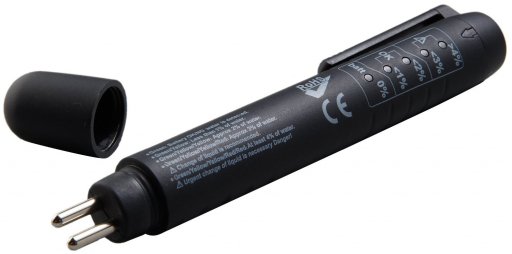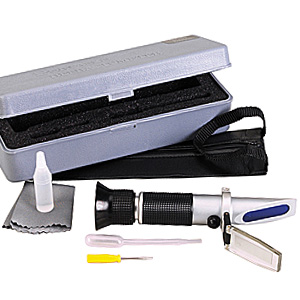Greeting all, I have assumed that most on this site are pretty mechanically inclined and do most of maintenance themselves. But Id thought I'd run over some things As far as Maintenance and parts to look at during inspection along with some tools That may be worth investing in that may aid with repairs at home and on the road/trail.
First Your Owners Manual. There is alot of info in their. From schedules for maintenance and some have torque ratings. most have schedules A and B one for normal driving and The other for severe driving , stop and go , lots of towing or hauling a bunch of stuff in the desert at a slow pace. Recommendations from manufactures vary and maintenance schedules vary from vehicle to vehicle. Be aware that service intervals are not end all be all. Engine oil is he big one here. What isnt mentioned in the service manuals is that your engine may consume a quart of oil every thousand miles and will go up to a quart every 750 miles after 50k miles . this is considered normal from many manufactures. the problem comes from your indicator on most newer vehicles saying 5 to 10k miles intervals. The math shows youll have no oil and this has been the case for several warranty concerns. With some intake valves being hydraulically operated - no oil = stall and no start, or in worse case scenarios engine failure due to spun rods. So in short every other oil change check your oil.
Staying under the hood is checking you trans fluid, assuming you have a dipstick- some vehicles are not equipped with trans dip stick and are only available through the dealer as there is a certain way the trans fluid needs to be checked. Though In some instances you can by the ones used at the dealer and look online to get an idea of the correct level it should be at . Though even if your not comfortable checking for the correct level you at least and check the condition the fluid. Fluid color will vary from different makes and models. so check it when its new or when the service has been performed. This will give you a clear indication of problems down the road or something that may be needing immediate attention.
Dark colored fluid is on its way out and may be burning. There isn't mistaking burnt trans fluid its pretty awful. For the Manual guys assuming you have a Hydraulically controlled clutch the fluid is located usually by the Master cylinder and Brake booster. Usually a pilsner color is what you want. Brake fluid should be this color as well in most cases. Most recommendations for changing of the brake fluid is every two years or sooner if a certain amount of moisture is present in the fluid. there's a few ways to check the fluid , ph strips from any parts store or some tool trucks sell a simple led meter . The fluid level is something to be aware of. Low fluid can be attributed to several things. A leaking master cylinder or brake caliper or other component, though it would be pretty obvious if you have a leak. The Other thing is the wear of the brake pads and drum shoes. Some techs myself included Dont usually top off brake fluid unless dangerously low and at that point other things need to be addressed .
The last fluid at least that I can think of is the coolant. level is of course important but There is Electrolysis that occurs when fluid starts to break down and will start to eat away at the materials of you engine. You can use a voltmeter to measure voltage. A max of .4 volts is what you want to cap. anymore suggests that the corrosion inhibitors are pretty much gone. The use of a prestone gauge or better yet a refractometer to dial in your coolant to water ratio- I usually try to run distilled water when I flush systems as tap I have read shortens the lifespan of coolant. Coolant life is usually 3/5/10 though life can be shortened due to contamination . Also coolant color isnt what you should go by or generic all purpose coolant should be avoided . You have IAT / OAT / HOAT coolants a google search will explain these products. They are not be mixed as they will coagulate cause a bunch of clogging that wont be easy to fix
Next we will talk seapage vs leaks. tomorrow as thats alot typing. also If you want to know how to test something ask away. Ill try and pictures of good and bad fluids along with failed components .
A picture of the brake fluid tester I use - its not pinpoint but it gives you pretty good idea of the quality of your brake fluid.

First Your Owners Manual. There is alot of info in their. From schedules for maintenance and some have torque ratings. most have schedules A and B one for normal driving and The other for severe driving , stop and go , lots of towing or hauling a bunch of stuff in the desert at a slow pace. Recommendations from manufactures vary and maintenance schedules vary from vehicle to vehicle. Be aware that service intervals are not end all be all. Engine oil is he big one here. What isnt mentioned in the service manuals is that your engine may consume a quart of oil every thousand miles and will go up to a quart every 750 miles after 50k miles . this is considered normal from many manufactures. the problem comes from your indicator on most newer vehicles saying 5 to 10k miles intervals. The math shows youll have no oil and this has been the case for several warranty concerns. With some intake valves being hydraulically operated - no oil = stall and no start, or in worse case scenarios engine failure due to spun rods. So in short every other oil change check your oil.
Staying under the hood is checking you trans fluid, assuming you have a dipstick- some vehicles are not equipped with trans dip stick and are only available through the dealer as there is a certain way the trans fluid needs to be checked. Though In some instances you can by the ones used at the dealer and look online to get an idea of the correct level it should be at . Though even if your not comfortable checking for the correct level you at least and check the condition the fluid. Fluid color will vary from different makes and models. so check it when its new or when the service has been performed. This will give you a clear indication of problems down the road or something that may be needing immediate attention.
Dark colored fluid is on its way out and may be burning. There isn't mistaking burnt trans fluid its pretty awful. For the Manual guys assuming you have a Hydraulically controlled clutch the fluid is located usually by the Master cylinder and Brake booster. Usually a pilsner color is what you want. Brake fluid should be this color as well in most cases. Most recommendations for changing of the brake fluid is every two years or sooner if a certain amount of moisture is present in the fluid. there's a few ways to check the fluid , ph strips from any parts store or some tool trucks sell a simple led meter . The fluid level is something to be aware of. Low fluid can be attributed to several things. A leaking master cylinder or brake caliper or other component, though it would be pretty obvious if you have a leak. The Other thing is the wear of the brake pads and drum shoes. Some techs myself included Dont usually top off brake fluid unless dangerously low and at that point other things need to be addressed .
The last fluid at least that I can think of is the coolant. level is of course important but There is Electrolysis that occurs when fluid starts to break down and will start to eat away at the materials of you engine. You can use a voltmeter to measure voltage. A max of .4 volts is what you want to cap. anymore suggests that the corrosion inhibitors are pretty much gone. The use of a prestone gauge or better yet a refractometer to dial in your coolant to water ratio- I usually try to run distilled water when I flush systems as tap I have read shortens the lifespan of coolant. Coolant life is usually 3/5/10 though life can be shortened due to contamination . Also coolant color isnt what you should go by or generic all purpose coolant should be avoided . You have IAT / OAT / HOAT coolants a google search will explain these products. They are not be mixed as they will coagulate cause a bunch of clogging that wont be easy to fix
Next we will talk seapage vs leaks. tomorrow as thats alot typing. also If you want to know how to test something ask away. Ill try and pictures of good and bad fluids along with failed components .
A picture of the brake fluid tester I use - its not pinpoint but it gives you pretty good idea of the quality of your brake fluid.

Last edited:












